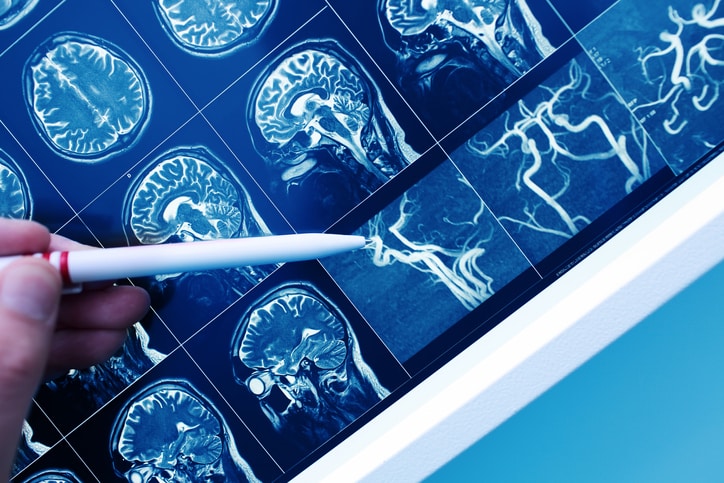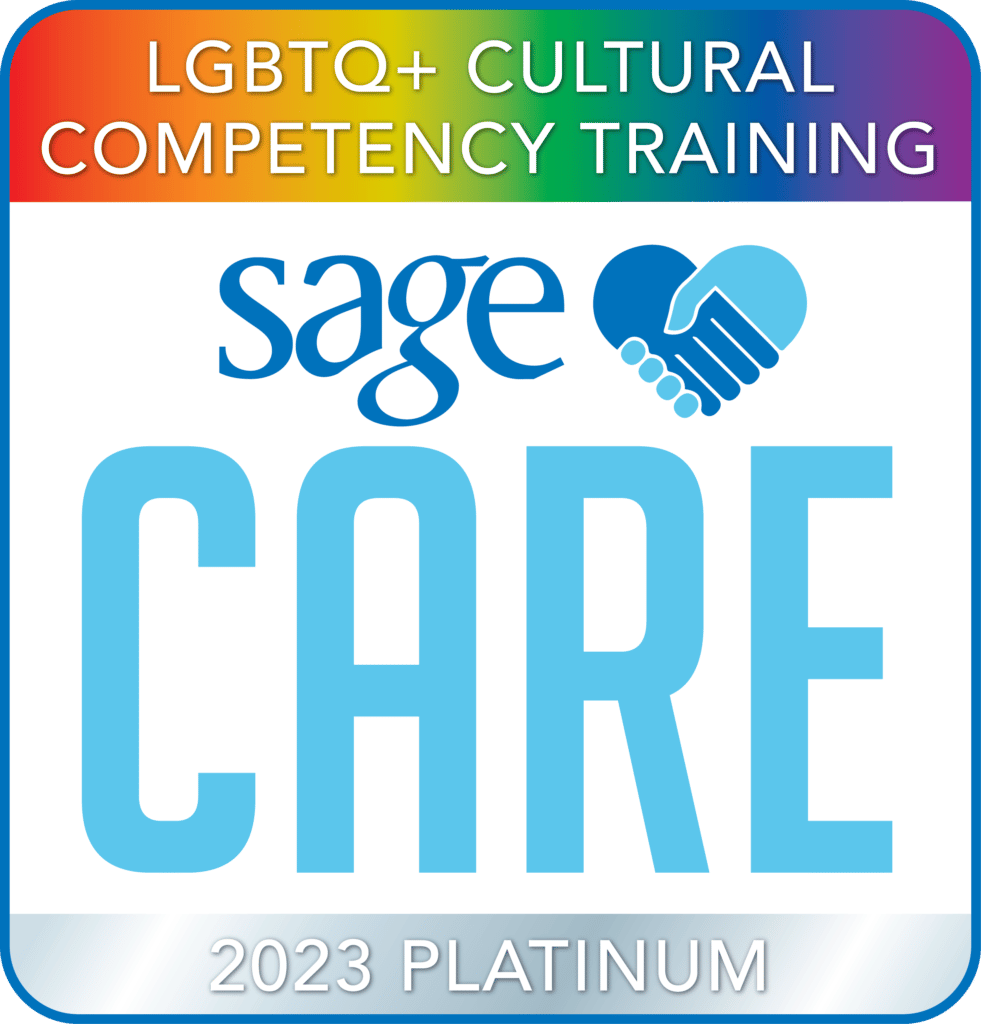What is Vascular Dementia?

Vascular dementia (VaD) is the second most common type of dementia. Even though it’s common, it’s important to note that the causes, risk factors, and symptoms of vascular dementia are somewhat different from Alzheimer’s Disease and other forms of dementia. In this article, our team of memory care specialists in Cape May County will cover the causes, symptoms, and the difference between vascular dementia and other types of dementia.
Vascular dementia causes and symptoms
VaD is caused by reduced blood flow through the capillaries. When the brain can’t get enough oxygen and nutrients through the blood, cognitive function starts to decline. Risk factors for this type of dementia include anything that may compromise this blood flow, such as:
- Stroke – A stroke can cause a blockage to lodge in capillaries or arteries in the brain, reducing blood flow.
- Brain hemorrhage – Bleeding can occur in the brain for several reasons, diverting oxygen and nutrients away from affected parts of the organ. Common reasons include the vessels weakening over time (more common in people with high blood pressure), aneurysm (a weak section of a vessel that eventually bursts or leaks), or trauma.
- Narrow blood vessels – This is commonly associated with aging, high blood pressure, atherosclerosis (a build-up of fatty tissue in the vessels), diabetes, and a buildup of plaque in the vessels from high cholesterol.
- Diabetes – This health condition causes the blood vessels to lose elasticity, making it more difficult for blood to flow through them.
- Unhealthy lifestyle – Including limited physical activity, poor diet, carrying additional weight, smoking, and the over-use of alcohol.
- Age – With age, our blood vessels can start to wear out, creating weaknesses and losing elasticity, making them less effective.
- Atrial fibrillation – This is an abnormal heart rhythm, where the upper chambers beat rapidly and are out of sync with the lower chambers. This impacts how effectively the heart can move blood to the brain, and it can also cause blood clots in the vessels, increasing stroke risks.
The symptoms of VaD can differ from person to person because they depend on what parts of the brain are being deprived of oxygen and how badly. Sometimes the symptoms of VaD look very similar to Alzheimer’s or other types of dementia, and other times they are very distinct. In general, people with VaD tend to have the following symptoms:
- Disorientation
- Confusion
- Difficulty walking or balancing
- Difficulty expressing themselves verbally
- Dramatic mood swings, including depression or apathy
- Difficulty focusing or solving a problem
- Memory problems
- Difficulty organizing thoughts, analyzing a situation or communicating a plan
- Slower thinking process
- Restlessness
- Urinary incontinence
What is the difference between VaD and Alzheimer’s?
Alzheimer’s disease is thought to be caused by the build-up of proteins around brain cells, making it increasingly difficult for the cells to communicate with one another. No one is quite sure why this build-up happens. In contrast, we know that vascular dementia is due to a problem in the blood vessels of the brain itself, where a physical leak or blockage causes the brain to be deprived of oxygen.
While the most noticeable, common sign of Alzheimer’s is memory loss, people with VaD instead often see changes in personality or decision-making where the memory is not usually affected.
Caring for seniors with VaD – Memory care specialists in South Jersey
As with other forms of dementia, seniors with VaD often need additional care throughout their daily life, especially if they also have Alzheimer’s.
UMC at The Shores is an assisted living community in Ocean City, NJ, that’s committed to providing professional, compassionate support to seniors. With our Tapestries memory care program specifically designed to maximize the quality of life for seniors living with different dementia conditions, our team of memory care specialists in South Jersey is trained and qualified to give families and loved ones the support and space they need to enjoy quality time with one another.
If you are seeking assistance as a caregiver of a loved one with dementia, don’t hesitate to get in touch with our team, or visit our website at:




